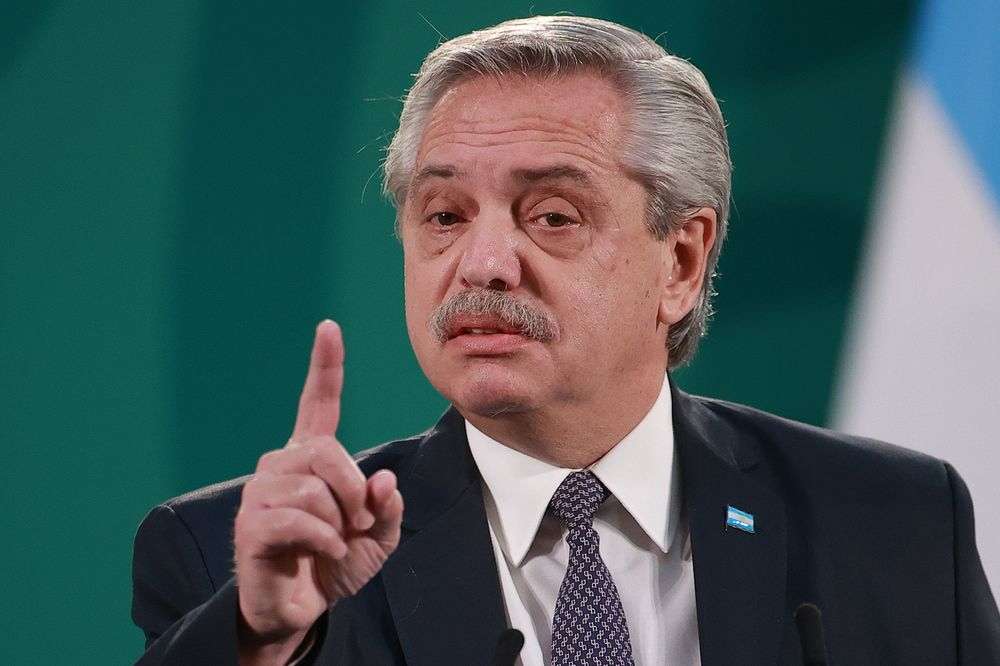President Alberto Fernández has accused the International Monetary Fund (IMF) of seeking to “impose” a programme of “austerity” on Argentina that would limit future growth. Speaking in an interview with local radio station AM750, the Peronist leader confirmed that his government is still seeking a deal to restructure its US$44-billion debt with the multilateral lender, but said he would not accept a deal that comes with austerity measures that slow the economic recovery.
“The real discussion we are having with the Fund today is to see how the programme should be: if it is like the one we are proposing, with the idea that with growth we will be able to meet payments, or if it is, once again, to return to the Fund’s eternal recipe, which is more austerity and shrinking the economy. We are not in a position to do that, which is why the discussion is delayed,” declared the Peronist leader.
The president warned that “what they [the IMF] are trying to do is impose a programme on us, and we don’t agree with that. So we are still looking to find a way out that suits Argentina.”
Fernández’s government is seeking an extended fund faciltiies agreement to replace the record US£57-billion credit-line agreed with the government led by his predecessor in office, Mauricio Macri, back in 2018. Under the terms of that deal, Argentina must shell out payments totalling around US$19 billion in 2022 and another US$20 billion in 2023, with another US$5 billion due the following year.
“Argentina is absolutely unable to meet these payments. Nobody seriously thinks in the world that Argentina can pay US$19 billion, between capital and interest, this year. It is necessary to continue talking and trying to find a solution with the Fund,” said the president.
At a high-profile presentation last week before provincial governors and officials, Economy Minister Martín Guzmán revealed that Argentina’s fiscal deficit was one of the sticking points in talks, with the government seeking to balance by 2027 and the IMF seeking zero deficit by 2024.
Speaking Monday, Fernández said that “the Fund has a share of responsibility in what happened” for having “delivered an unspeakable loan in technical terms” to Macri administration. The president branded the emergency credit-line “a political loan with the sole purpose of sustaining Macri” in government, alleging that the deal had been pushed through with the support of then-US president Donald Trump.
“We can’t ask a country like Argentina to make more demands than Argentina can give,” Fernández added. Asked if he is evaluating the possibility of Argentina failing to make the payment and entering into default with the multilateral lender, the president responded that “the only evaluation I am making is to make an agreement with the premises that I explained: an agreement that does not postpone Argentina’s growth, that allows it to grow in order to be able to pay.”

